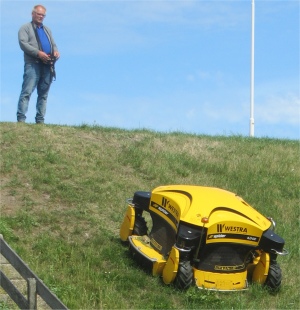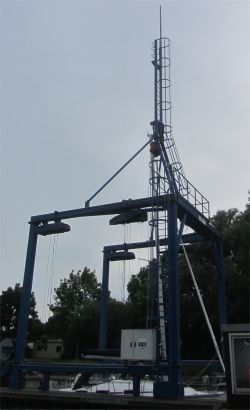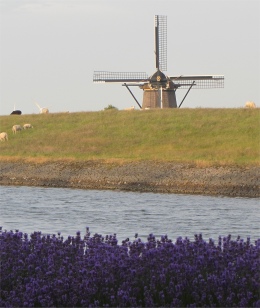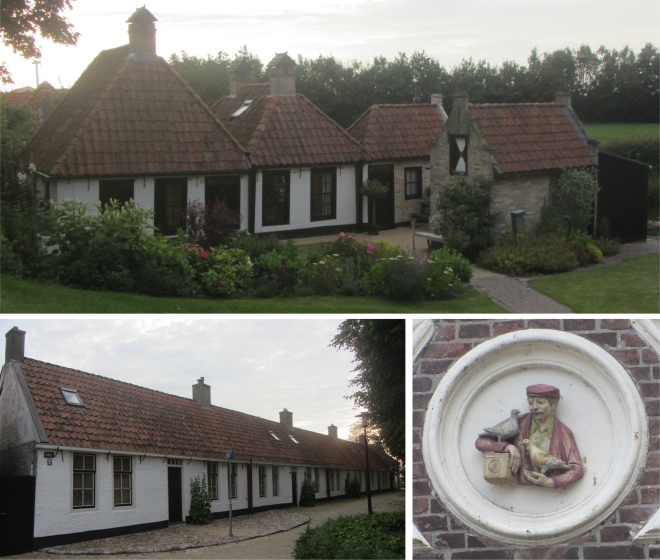
Remote Mowing in Harlingen
|
The sun shone down on us as we topped up with fresh water and prepared
Duonita for the next leg of our journey. A quick trip to the supermarket for final provisions, and a view over the harbour wall to ascertain the state of the Waddenzee, and we were all set.
We cast off our lines, and were soon gilling about waiting to pass through the lock to the Waddenzee level. We intended to use the ebb tide to take us down the coast to the Kornwerderzand Sluis.

Novel Way to Gain Access to the Top of a Mast
|
A German yacht was already gilling when we arrived, and its skipper made sure he entered the lock before we did. He motored in at less than starfish pace, and instead of travelling all the way down to the far end of the lock, he stopped half way - not a helpful thing for us.
The journey down to the Kornwerderzand Sluis was uneventful. Many more yachts were following the same route, as were a few trawlers and a high speed survey boat. The latter created a large wake which managed to bounce eggs out of their holders in the fridge. We discovered this when Rex opened the fridge to retrieve some milk, the floor of the boat became a mess of uncooked scrambled eggs.

Nijlânnermolen
|
A few hours later we were carefully motoring up a very narrow channel which opened into a wider canal that led to Workum. We entered a large (800+ berth) marina near the start of this canal. The marina had all the facilities that you'd expect of a modern marina, but it was soulless; perhaps it would liven up when the season starts.
We took a gentle stroll up the one mile stretch of road through pleasant countryside to the small town of Workum. Heavily protected by its sea defences, the town of Workum, ten minutes southwest of Sneek by train, is a very pleasant place that was until the early 18th century a busy seaport.

Typical Workum Architecture
|
Workum has had city rights since 1399 and is one of the eleven cities of the Elfstedentocht. The city resorted to shipbuilding in the 15th century since trade at the port was being diverted to Holland and Zeeland. When the polders were built in the 17th century, many mills were also established. There are four windmills in Workum today; De Nijlânnermolen, De Snip, Het Heidenschap and Ybema's Molen. In order to build these, pines were brought in by Baltic seamen. This led to a flourishing shipbuilding business again.
We ambled up a sleepy main street to a pretty central square, the Merk, anchored by a 17th century Waag. Not far past the square stood what is probably what the town is best known for, a museum dedicated to the very popular artist Jopie Huisman, sadly closed when we arrived. Unfortunately, that was all the charm we could find in this small "city".





